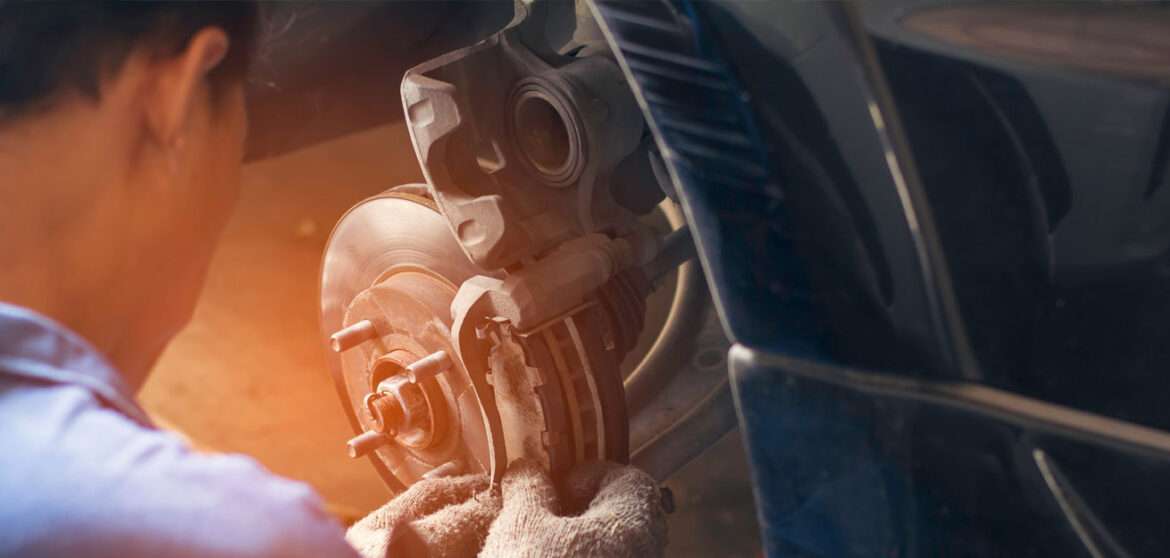How to Maintain Car Brakes for Driving in UAE
Your car brakes are not just a crucial safety feature; they are your first line of defense on the road. In the UAE, where high-speed highways and sudden stops are common, well-maintained brakes are essential to avoid accidents. Neglecting your brake system can lead to costly repairs and compromise your safety.
Drive UAE will guide you through the importance of brake maintenance. Let’s get started.
Signs Your Brakes Need Attention
Recognizing early signs of brake issues can prevent accidents and costly repairs. Here are the key indicators that your brakes may need immediate attention:
- Squealing or Screeching Noises: High-pitched sounds when braking often indicate worn brake pads.
- Grinding Sounds: A grinding noise suggests that the brake pads are completely worn out, causing metal-to-metal contact.
- Vibrations or Pulsations: If the brake pedal or steering wheel vibrates when braking, it could indicate warped rotors.
- Soft or Spongy Brake Pedal: A brake pedal that feels soft or sinks to the floor may signal air in the brake lines or a fluid leak.
- Longer Stopping Distances: If your car takes longer to stop, it could mean reduced brake efficiency due to worn pads or other issues.
- Dashboard Warning Light: A brake warning light indicates a problem with the brake system that needs immediate attention.
- Burning Smell After Braking: A sharp, burning odor after braking could mean overheated brakes or brake fluid.
- Pulling to One Side: If your car pulls to one side while braking, it may indicate uneven brake pad wear or a malfunctioning caliper.
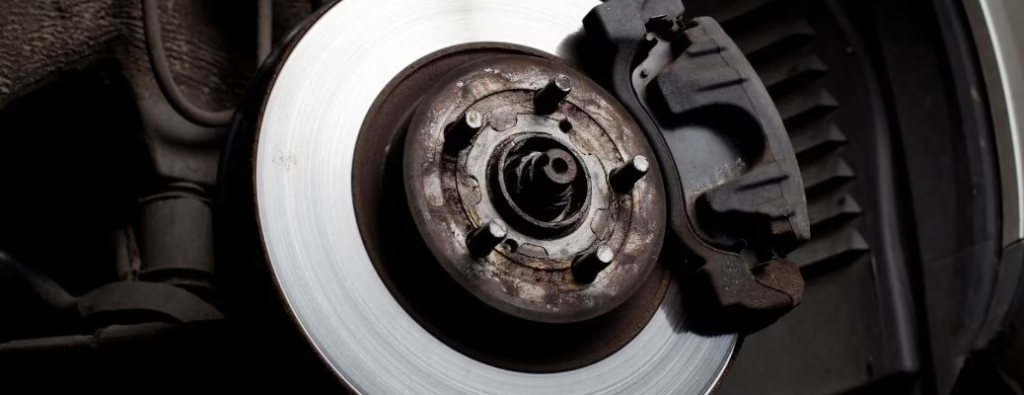
Essential Brake Maintenance Tips
Here are the tips you need to know.
- Inspect Brake Pads Regularly: Check for signs of wear and replace pads when they are thin or worn down. Ensure even wear across both sides to maintain balanced braking performance.
- Maintain Proper Brake Fluid Levels: Check brake fluid regularly and top it up as needed. Replace brake fluid every 2-3 years to prevent moisture buildup and maintain hydraulic pressure.
- Inspect Brake Rotors: Check for cracks, grooves, or warping that can cause vibrations or reduced braking efficiency. Have rotors resurfaced or replaced if they show signs of damage.
- Test Brake Pedal Response: The brake pedal should feel firm and respond quickly. If it feels soft, spongy, or sinks to the floor, inspect for issues with the brake lines or fluid.
- Clean Brake Components: Keep the brake pads, rotors, and calipers free from dirt, debris, and moisture. Clean components regularly to prevent buildup that can affect brake performance.
- Ensure Proper Brake Caliper Function: Check calipers for sticking or uneven wear, which can lead to reduced braking power. Lubricate the caliper pins to ensure smooth operation.
- Check Brake Lines and Hoses: Inspect brake lines for any signs of leaks, cracks, or wear. Replace damaged brake lines promptly to prevent brake fluid loss and ensure safety.
- Monitor Brake Temperature: Avoid excessive braking that can overheat the brakes, especially during long descents. Allow your brakes to cool down after heavy use to prevent brake fade.
- Schedule Regular Brake Inspections Have a professional mechanic inspect your brake system every 12,000 to 15,000 miles (or once a year).
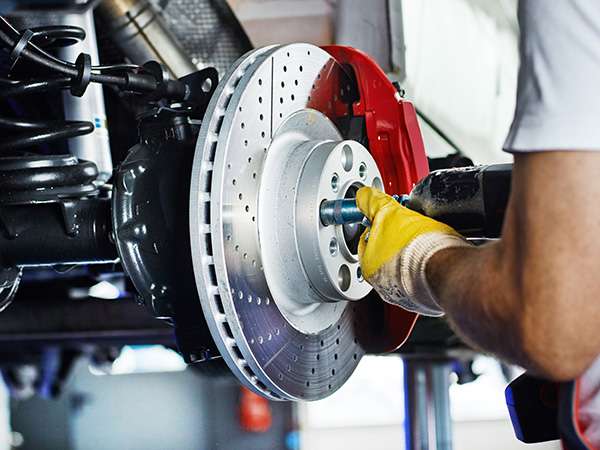
Adapting Brake Maintenance to UAE Conditions
Here’s what you should do.
Prepare for Extreme Heat
High temperatures in the UAE can cause brake fluid to overheat, affecting brake performance. Regularly check and replace brake fluid to prevent moisture contamination and overheating.
Clean Brakes to Combat Sand and Dust
The desert environment can lead to sand and dust buildup on brake components. Regularly clean the brakes to avoid debris affecting their performance.
Monitor Brake Pad Wear
In the UAE’s hot climate, brake pads can wear down faster due to increased friction from frequent high-speed driving. Inspect brake pads more often, especially during summer months.
Ensure Proper Brake Ventilation
Ensure air vents around the brake system are clean and unobstructed to help cool the brakes effectively. Consider vented rotors for improved heat dissipation.
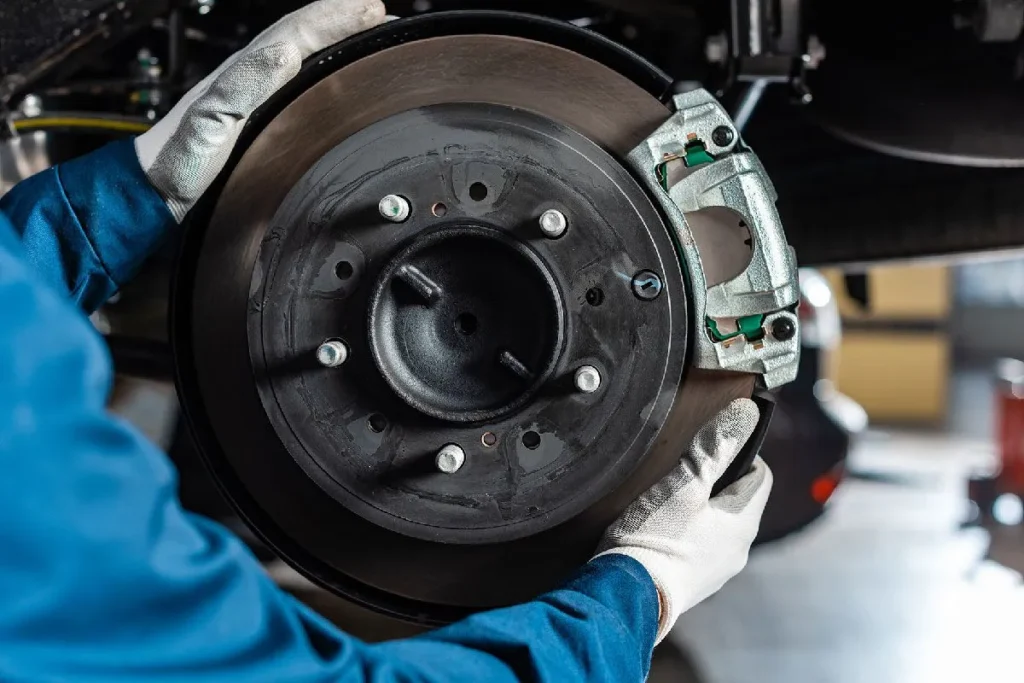
Avoid Overheating on Long Drives
Long drives in hot conditions can cause brake overheating, reducing their effectiveness. Give your brakes a break on long descents to prevent overheating and brake fade.
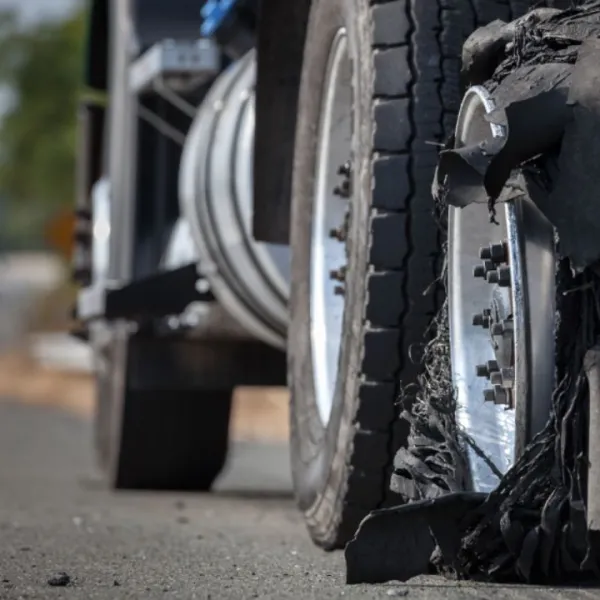
Check Tire Pressure Regularly
Hot temperatures can increase tire pressure, affecting braking performance. Monitor tire pressure regularly, especially during the summer, to maintain optimal braking efficiency.
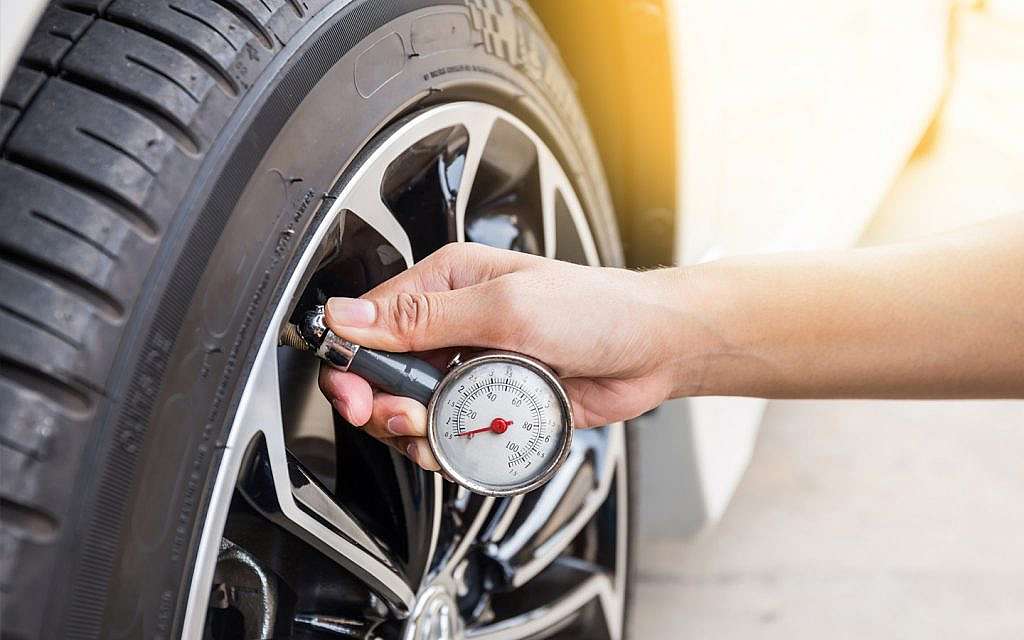
Maintain Brake Pads for Stop-and-Go Traffic
In busy urban areas like Dubai, frequent braking in stop-and-go traffic can wear out brake pads faster. Ensure your brake pads are regularly checked and replaced to handle the stop-start conditions.
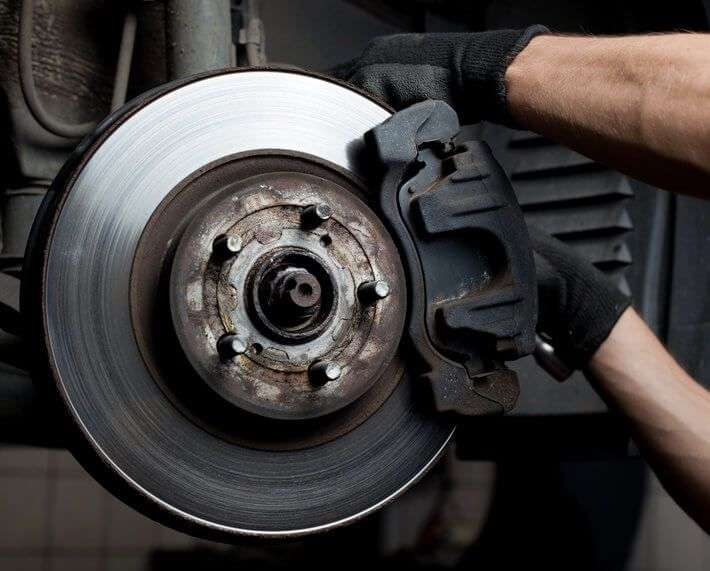
Plan for Heavy Rain
Though the rainy season is short, wet conditions can affect brake performance. Regularly check brake components and maintain them for effective operation when driving in wet weather.
Preventative Driving Habits for Brake Longevity
Here are some preventative habits for you.
- Try to brake gently and gradually to reduce stress on the brake pads and rotors.
- Keep a safe distance from the car in front of you to allow more time for braking and avoid sudden stops.
- Look ahead and anticipate traffic changes, allowing you to coast to a stop or slow down naturally.
- When driving downhill, use the engine to slow down by shifting to a lower gear instead of constantly applying the brakes.
- Avoid carrying excessive weight in your car, as it increases the load on your braking system.
- Excessive speed increases the force required to stop your vehicle, putting more pressure on the brakes.
- Ensure your tires are properly inflated, as under-inflated tires can cause excessive braking heat and reduce braking efficiency.
Conclusion
Maintaining your car’s brakes is essential for your safety and the longevity of the braking system, especially in the UAE’s challenging driving conditions. Regular inspections, proper brake care, and adopting smart driving habits will ensure your brakes perform at their best.

